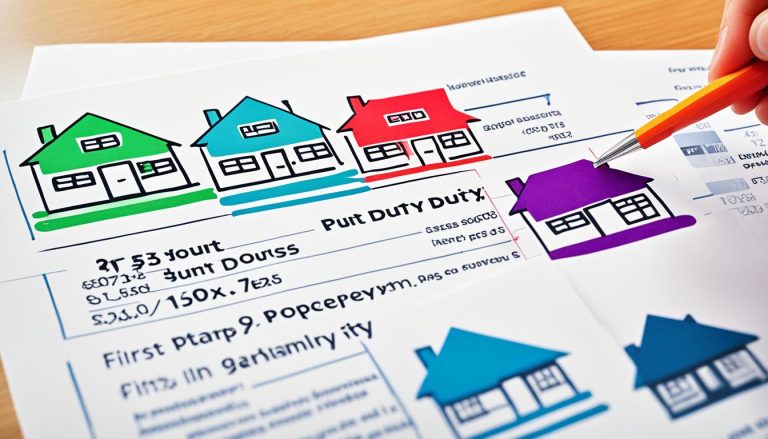Welcome to our comprehensive guide on the time limits for executors to sell a house in the UK. If you find yourself in the role of an executor of an estate, it’s essential to understand the legal obligations and time constraints involved in selling a property. In this article, we will address common questions such as how long does an executor have to sell a house in the UK, what are the time limits for executors, and what are the responsibilities of an executor when it comes to selling property.
As an executor of an estate, you have a vital role to play in overseeing the administration of the deceased individual’s assets, including the sale of a house. It’s crucial to navigate this process within the specified time frame to ensure a smooth transition of the estate. Let’s delve into the details and explore the intricacies of selling a house as an executor in the UK.
Throughout this guide, we will provide you with valuable insights and practical advice to help you navigate the legal requirements, paperwork, and necessary steps involved in selling a house as an executor. We will also discuss the importance of engaging with professionals and preparing the property for sale within the designated time frame.
Whether you are a newly appointed executor or seeking clarification on the time limits and responsibilities involved in selling a house, this article will equip you with the knowledge and confidence to handle the process effectively.
Let’s get started and explore the time frame for selling a house as an executor in the UK.
How Long Does an Executor Have to Sell a House in UK?
Before delving into the specific time constraints, it is crucial to comprehend the responsibilities and duties that an executor of an estate undertakes during the probate process. Executors play a pivotal role in managing the affairs of the deceased individual’s estate, including the sale of any property that forms part of the inheritance.
Probate House Sale Timeline:
During the probate process, executors are entrusted with the task of selling inherited property within a legal time frame determined by applicable laws in the United Kingdom. This timeline ensures that the estate administration proceeds in a systematic and orderly manner, safeguarding the interests of all beneficiaries.
Handling the Sale of Inherited Property:
The executor’s responsibility extends to managing various aspects of the property sale, including valuation, marketing, negotiations, and ultimately, the transfer of ownership. It is vital for executors to navigate this process diligently and efficiently to fulfill their obligations within the designated timeline.
The Legal Time Frame for Selling Inherited Property
The legal time frame for selling inherited property as an executor in the UK can vary depending on several factors, such as the complexity of the estate and any specific instructions outlined in the deceased individual’s will. However, it is generally expected that executors complete the sale within a reasonable period to ensure a smooth distribution of assets to the beneficiaries.
While there is no specific statutory time limit set for selling inherited property, executors are advised to act promptly and expedite the sale process to avoid unnecessary delays and complications. It is crucial to consult with legal professionals and seek guidance on complying with the legal requirements and adhering to a realistic time frame.
By assuming the role of an executor, individuals take on a significant responsibility that entails managing and selling property in a timely manner. Executors must understand their obligations, seek professional assistance when necessary, and diligently navigate the legal requirements associated with selling inherited property to ensure a successful and efficient administration of the estate.
| Responsibilities of an Executor | Considerations for Selling Inherited Property |
|---|---|
| Obtaining probate | Valuation of the property |
| Locating and managing assets | Preparing the property for sale |
| Paying outstanding debts and taxes | Engaging with estate agents and solicitors |
| Distributing assets to beneficiaries | Marketing the property effectively |
| Fulfilling any specific instructions in the will | Liaising with potential buyers and negotiating offers |

Probate and its impact on property sales
When it comes to selling a property as an executor, understanding the impact of probate is crucial. Probate is the legal process that verifies the validity of a will and ensures the proper administration of an estate. During this process, the necessary steps are taken to distribute assets, including the sale of any property involved.
One significant factor that probate can influence is the duration of a property sale. Executors must navigate through the probate process, which can add additional time and complexity to the sale. It is important for executors to be aware of any time limits imposed on them in relation to selling inherited property, as failure to comply with these deadlines can result in legal consequences.
Now, let’s take a closer look at the duration of probate property sales and the time limits that executors need to consider:
Probate Property Sale Duration
The duration of a probate property sale can vary depending on several factors. These factors can include the complexity of the estate, the presence of any disputes or claims, and the efficiency of the probate process itself. It is essential for executors to understand that the sale may take longer than a typical real estate transaction due to the additional requirements and legalities involved.
During the probate process, the executor is responsible for obtaining a Grant of Probate or Letters of Administration, which grant them the legal authority to administer the estate and proceed with the property sale. The timeline for obtaining these documents can vary, but it is advisable for executors to consult with a solicitor experienced in probate matters to ensure a smooth and timely process.
Once the necessary documents are in hand, the executor can proceed with marketing and selling the property. This stage can involve engaging with professionals such as estate agents and valuers to determine the property’s value and devise a strategy for attracting potential buyers.
While there is no fixed duration for a probate property sale, executors should be prepared for the process to take several months or longer. It is essential to allow ample time for all necessary steps to be completed to ensure a successful sale within the legal framework.
Time Limit for Executors to Sell House
Executors must also be mindful of any time limits imposed on them when it comes to selling inherited property. These time limits can vary depending on the jurisdiction and the specific circumstances of the estate.
In the UK, for example, there is no strict time limit for executors to sell a house. However, there is a general expectation that the executor should administer the estate in a timely manner and distribute the assets, including the sale of any property, as efficiently as possible.
It is advisable for executors to consult with a solicitor to understand any specific time limits or guidelines that may apply to their situation. By doing so, they can ensure they comply with their legal obligations and avoid any potential problems or delays in the probate process.
| Factors Affecting Probate Property Sale Duration | Time Limit for Executors to Sell House |
|---|---|
| Complexity of the estate | Dependent on jurisdiction and circumstances |
| Presence of disputes or claims | No strict time limit in the UK |
| Efficiency of the probate process | General expectation of timely administration |
As an executor, understanding the impact of probate on property sales and any time limits involved is crucial. By navigating the probate process diligently and seeking professional advice when needed, executors can ensure a smooth and timely sale of inherited property.
Interact with Professionals
Selling a property as an executor can be a complex undertaking. Alongside the demands of the probate process, engaging with professionals, such as solicitors and estate agents, can prove invaluable.
These professionals possess the knowledge and expertise to guide executors through the property sale process, ensuring compliance with legal requirements and maximizing the property’s market potential.
An experienced solicitor can provide valuable advice and assistance in navigating the legal aspects of the property sale, ensuring that all necessary documentation and compliance obligations are met.
Similarly, an estate agent can help in marketing and promoting the property to attract potential buyers. They can provide valuable insight on pricing, staging, and negotiating the sale, helping to achieve a successful outcome within the stipulated time frame.

By engaging with professionals, executors can benefit from their expertise and guidance, ultimately streamlining the property sale process and ensuring a successful outcome within the required time limit.
Preparing the house for sale
Selling a house, whether as an individual or an executor, requires careful preparation to ensure a smooth and successful sale. When it comes to estate properties, this process becomes even more crucial. In this section, we will discuss the essential steps that an executor should take to prepare the house for sale within the legal time frame for selling inherited property in the UK.
1. Evaluate the Condition of the Property
Before listing the house on the market, it’s essential to assess its condition. Take the time to inspect the property thoroughly, noting any repairs or renovations that may be required. This evaluation will help you determine the potential market value and make informed decisions about necessary repairs.
2. Clear Out Personal Belongings
An executor should ensure that all personal belongings of the deceased are removed from the property. This may involve coordinating with family members or heirs to gather personal items. Clearing out these belongings not only helps declutter the space but also allows potential buyers to envision themselves living in the property.
3. Complete any Legal Obligations
Prior to selling the property, an executor must fulfill any legal obligations associated with the estate. This may include resolving outstanding debts, paying off mortgages or liens, and obtaining necessary documents or certificates. Ensuring all legal requirements are met will streamline the sale process and avoid potential complications.
4. Make Necessary Repairs and Upgrades
Addressing any repairs or making strategic upgrades can greatly enhance the marketability of the property. Prioritize repairs that affect the functionality or safety of the house, such as fixing leaky faucets or replacing broken windows. Consider making cosmetic improvements to boost the property’s appeal, such as repainting walls or updating outdated fixtures.
5. Stage the Property
Staging the property involves arranging furniture and decor in a way that highlights its best features and creates a welcoming atmosphere. Hiring a professional stager or a real estate agent experienced in staging can help maximize the property’s potential. A well-staged house can leave a lasting impression on potential buyers, increasing the likelihood of a successful sale.

6. Develop a Marketing Plan
Once the house is ready for sale, it’s crucial to create a comprehensive marketing plan to attract potential buyers. Collaborate with your chosen real estate agent to determine the most effective marketing strategies, such as online listings, open houses, and targeted advertisements. A robust marketing plan will help generate interest and expedite the sale process.
| Benefits of Preparing the House for Sale | Examples |
|---|---|
| Enhanced market appeal | Increased buyer interest and higher offers |
| Reduced time on the market | Less chance of price reductions and negotiations |
| Higher return on investment | Maximized property value and potential profits |
| Smooth and efficient sale process | Minimized complications and legal issues |
Engaging with professionals
When it comes to selling a deceased estate property in the UK, engaging with professionals can play a crucial role in ensuring a smooth and successful sale. Executors often seek the assistance of experts such as solicitors, estate agents, and valuers who possess the knowledge and experience to navigate the complexities of the sale process.
Solicitors: Executors are responsible for probate, which involves managing legal and administrative aspects of the deceased individual’s estate. Solicitors specializing in probate can provide valuable guidance throughout the property sale journey, ensuring compliance with legal requirements and offering expert advice on any related legal matters.
Estate agents: In order to maximize the potential of a probate property sale, estate agents can be a valuable resource. They have an in-depth understanding of the local market and can help determine an appropriate asking price, market the property effectively, and reach potential buyers quickly. Their expertise can significantly contribute to a timely and successful sale.
Valuers: Executors may also consider engaging the services of professional valuers who can provide accurate and independent property valuations. This can help ensure that the property is priced correctly, attracting genuine interest from potential buyers and preventing any delays in the sale process.
By collaborating with these professionals, executors can benefit from their expertise, minimize the burden of the property sale process, and enhance the chances of selling the deceased estate property within the desired timeframe.
| Professional | Role | Benefits |
|---|---|---|
| Solicitors | Manage legal and administrative aspects of probate | Ensure compliance with legal requirements, offer expert advice |
| Estate agents | Determine appropriate asking price, market the property effectively | Maximize market potential, reach potential buyers quickly |
| Valuers | Provide accurate and independent property valuations | Price the property correctly, prevent delays in the sale process |
Marketing and selling the property
Once the house is ready for sale, it is crucial for the executor to market and promote the property effectively. To ensure a successful sale within the specified time limit, here are some strategies and considerations to keep in mind:
- Create a Strong Online Presence: Utilize online platforms and real estate websites to showcase the property with engaging descriptions, high-quality photos, and virtual tours. This will attract potential buyers and increase the property’s visibility.
- Hire a Professional Photographer: Investing in professional photography can significantly enhance the appeal of the property, capturing its best features and attracting more interest from buyers.
- Highlight Unique Selling Points: Identify and emphasize the property’s unique selling points, such as location, architectural features, or potential for renovation. These factors can set it apart from other listings and attract potential buyers.
- Promote Through Social Media: Leverage social media platforms, such as Facebook, Instagram, and Twitter, to market the property to a wider audience. Share visually appealing photos, engaging descriptions, and include relevant hashtags to reach potential buyers.
- Host Open Houses: Organize open house events to allow interested buyers to view the property firsthand. This creates a sense of urgency and encourages potential buyers to make offers quickly.
Comparative Analysis of Marketing Strategies
| Marketing Strategy | Advantages | Disadvantages |
|---|---|---|
| Online Listings | Wide reach, high visibility, easy access to property information | Competition with other listings, limited personal interaction |
| Professional Photography | Enhanced presentation, better first impression, increased buyer interest | Additional cost, scheduling logistics |
| Social Media Promotion | Broader audience reach, cost-effective, potential for viral promotion | Managing multiple platforms, potential privacy concerns |
| Open Houses | Opportunity to interact with potential buyers, create urgency | Scheduling logistics, limited time for personal viewings |
By implementing these marketing strategies, executors can effectively showcase and sell the property within the designated time limit, maximizing its market potential and ensuring a successful transaction.

Navigating legal requirements and paperwork
Selling a house as an executor of an estate in the UK involves fulfilling various legal requirements and navigating through a thorough paperwork process. Executors must ensure compliance with designated time limits while adhering to the necessary legal steps, documents, and forms necessary for a smooth property sale.
Understanding the Executor’s Role
Before proceeding with the legal requirements, it is crucial to understand the role of an executor in the property sale process. Executors hold a fiduciary duty to act in the best interests of the estate’s beneficiaries and manage the property sale within the designated time frame.
Legal Steps in the Property Sale
Executing the sale of an estate property involves several legal steps that must be followed diligently. These steps may include:
- Obtaining the grant of probate: Executors must apply for a grant of probate to gain legal authority to sell the property. This grant confirms the validity of the deceased’s will.
- Preparing the contract of sale: Executors are responsible for preparing the contract of sale, which outlines the terms and conditions of the property transaction.
- Conveyancing process: Executors need to engage solicitors to handle the conveyancing process, including property searches, title transfers, and the exchange of contracts.
- Complying with property disclosure requirements: Executors must ensure all necessary property disclosure information is provided to potential buyers, as required by law.
Required Documents and Forms
During the property sale process, executors are required to provide various documents and complete specific forms. These may include:
- Evidence of the executor’s authority: Executors must furnish evidence, such as copies of the grant of probate, to establish their legal authority to sell the property.
- Property information forms: Executors need to complete detailed property information forms that provide essential details about the property to potential buyers.
- Land Registry documents: Executors must obtain and provide relevant Land Registry documents, such as title deeds, to facilitate the property transfer.
- Contractual documents: Executors are responsible for completing and signing all necessary contractual documents, including the contract of sale.
Navigating through the legal requirements and paperwork of a property sale as an executor can be intricate and time-consuming. Executors may consider seeking professional advice from solicitors with expertise in probate and property law to ensure compliance with the designated time limits and the proper execution of legal obligations.
Conclusion
In conclusion, selling a house as an executor in the UK comes with its own set of timelines and responsibilities. Executors must be aware of their legal obligations and ensure they comply with the proper procedures throughout the property sale process. By understanding the time frame within which they must operate, executors can effectively manage the probate process and fulfill their duties.
Engaging with professionals such as solicitors, estate agents, and valuers proves invaluable in navigating the complexities of selling an estate property. These professionals bring expertise and experience to the table, helping executors make informed decisions and expedite the sale within the stipulated time limit.
Additionally, thoroughly preparing the house for sale is crucial. Executors must ensure the property meets legal requirements and maximizes its market potential. By engaging in effective marketing strategies and showcasing the property’s unique features, executors can attract potential buyers and increase the likelihood of a successful sale within the designated time frame.
In summary, a successful property sale as an executor requires careful planning, compliance with legal obligations, and the expertise of professionals. With proper understanding and execution of these factors, executors can navigate the property sale process efficiently and meet the necessary timelines, providing a smooth transition for the estate.
FAQ
How long does an executor have to sell a house in the UK?
The time frame within which an executor of an estate in the UK must sell a house can vary depending on various factors. Generally, there is no specific time limit imposed by law for selling a house as an executor. However, it is advisable to complete the sale within a reasonable period to ensure efficient administration of the estate.
What are the duties and responsibilities of an executor in relation to the sale of a property?
As an executor, you have a legal obligation to act in the best interests of the estate and its beneficiaries. When it comes to selling a property, your responsibilities include valuing the property, preparing it for sale, marketing, negotiating offers, and completing the necessary legal paperwork. It is crucial to follow the probate process diligently and seek professional advice to ensure a smooth and timely sale.
How does probate affect the duration of a property sale?
Probate is a legal process that can impact the duration of a property sale when an executor is involved. The probate process involves verifying the validity of the will, assessing the estate’s assets and liabilities, fulfilling any outstanding debts, and distributing the remaining assets to the beneficiaries. These steps, along with other legal requirements and paperwork, can prolong the property sale process. However, a diligent executor can effectively navigate the probate process to ensure a timely sale.
What steps should an executor take to prepare a house for sale?
To prepare a house for sale, an executor should ensure that it is in good condition and compliant with legal requirements. This may involve decluttering, cleaning, making necessary repairs, and obtaining appropriate energy performance certificates or building regulations compliance. It is essential to consult professionals such as solicitors and estate agents to help streamline the preparation process and maximize the property’s market potential within the designated time frame.
Is it necessary to engage with professionals during the property sale process?
Yes, engaging with professionals such as solicitors, estate agents, and valuers can significantly help executors in selling a deceased estate property in the UK. These professionals have specialized knowledge and experience in handling property sales and can guide you through the legal requirements, marketing strategies, and negotiation processes. Their expertise can ensure a smooth and efficient sale within the probate property sale duration.
What are the considerations involved in marketing and selling an estate property?
When marketing and selling an estate property, an executor should consider various factors. These include determining a competitive asking price based on the property’s market value, utilizing effective marketing strategies such as online listings and property portals, conducting viewings, and professionally presenting the property. Collaborating with estate agents can provide valuable insights and assistance in reaching potential buyers and maximizing the property’s visibility within the time limit specified for executor sales.
What legal steps and paperwork must an executor navigate during the property sale?
Selling a house as an executor involves navigating various legal requirements and paperwork. These may include obtaining a grant of probate, preparing a property information form, obtaining an energy performance certificate, ensuring compliance with the Consumer Protection from Unfair Trading Regulations, and finalizing the sales contract. Executors must work closely with solicitors to handle these legal aspects diligently and comply with the designated time limits.
In conclusion, what should executors keep in mind when selling a house in the UK?
Executors should remember that although there is no specific time limit imposed by law, it is essential to complete the sale within a reasonable period to ensure the efficient administration of the estate. By understanding their responsibilities, engaging with professionals, and following the proper procedures, executors can successfully navigate the property sale process within the stipulated time frame. Seeking legal advice and support throughout the sale process is highly recommended to ensure compliance and protect the interests of the estate and its beneficiaries.






